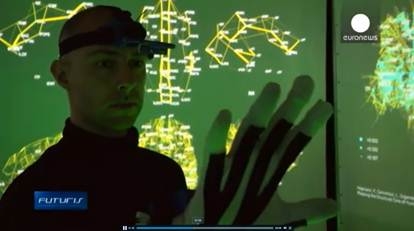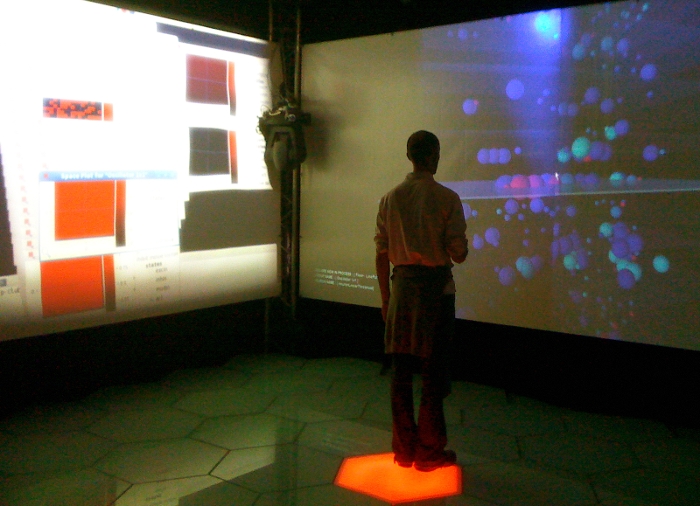Research project
CEEDs, the Collective Experience of Empathic Data Systems
The Collective Experience of Empathic Data Systems (CEEDs) consortium developed novel integrated technologies that support experiencing, analysing and understanding of very large datasets.
- Duration
- 2010 - 2014
- Funding
-
 EC funded 7th Framework Programme. Project number: 258749.
EC funded 7th Framework Programme. Project number: 258749.
- Partners
Goldsmiths of the University of London, Universitat Pompeu Fabra, University of Sussex, Informatics and Telematics Institute, Eberhard Karls of Universitaet Tuebingen, Universitaet Augsburg, University of Teesside, Universita Degli Studi Di Padova, Max Planck Gesellschaft zur foerderung der Wissenschaften E.V., Ecole Normale Superieure, Budapesti Muszaki es Gazdasagtudomanyi Egyetem, Universitat Politecnica de Catalunya, Universita di Pisa, Electrolux Italia S.P.A., Helsingin Yliopisto
The main goal of CEEDs was to develop innovative tools to exploit implicit human responses by analyzing users’ bio-signals and non-verbal behaviours. By associating these implicit responses with different features of large datasets, CEEDs aimed to guide users’ discovery of patterns and meaning within the datasets. Discovery is based on the identification of patterns in complex data sets, which is triggered by the information processing capabilities of the human brain. We are only aware of a small subset of the information we receive from our senses, but our brain still processes the rest subconsciously. The CEEDs system looks for signs of discovery or surprise in these subconscious processes, using wearable technologies that measure people's reactions to visualizations of large data sets. The system will then direct users to areas of potential interest in the visualizations and guide their discovery of patterns and meaning in the data sets.

The project was articulated in several sub-projects each focusing on different applications (such as neuroscience, archaeology and retail), and on developing ad hoc technologies that were integrated in a main common show-case. The archaeology application was targeted on data mining and automatic feature extraction of pottery datasets. Within the consortium, the Leiden team collaborated closely with the department of Computing at Goldsmiths University, London (Prof. Frederic Fol Leymarie), the Max Planck Institute for Mathematics in the Sciences, Leipzig (Prof. Jürgen Jost and Dr. Eckehard Olbrich) and the Informatics and Telematics Institute (CERTH/ITI) in Thessaloniki (Drs. Petros Daras and George Th. Papadopoulos).
CEEDS funded the PhD research of Chiara Piccoli, who is working on developing an integrated methodology for the analysis and visualization of past cityscapes based on GIS and procedural modelling techniques. Borrowing novel approaches from modern urban planning, her research focusses on the Graeco-Roman town of Koroneia, in Greece (supervisors: J. Bintliff and H. Kamermans).

Project assessment: CEEDs aimed at providing technological answers to the substantial challenge of facilitating people’s understanding of very large, dynamic data sets. With respect to the main scientific/technological objectives, CEEDs has developed and integrated technologies demonstrating how human understanding and discovery is substantially enhanced with the CEEDs system. The consortium has been successful in publishing joint research outcomes in high quality journals and conferences.
